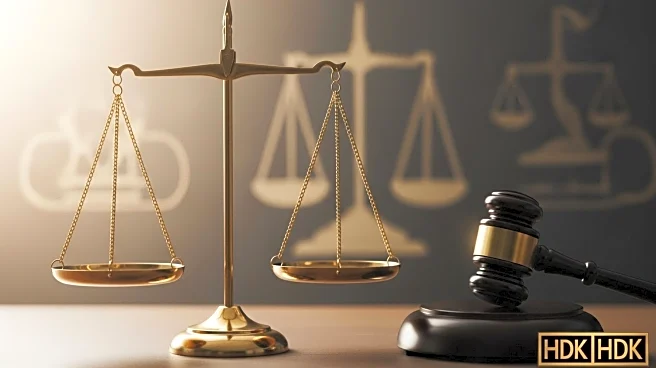What is the story about?
What's Happening?
A federal judge in Virginia has denied the Justice Department's request for extended discovery deadlines in the criminal case against former FBI Director James Comey. The judge ordered prosecutors to provide all discovery materials to Comey's defense by October 13. Comey, indicted on charges of making false statements to Congress and obstructing a congressional proceeding, faces a trial scheduled for January 2026. The indictment alleges Comey lied about authorizing FBI personnel to act as anonymous sources in news reports. The case has sparked debate over the Justice Department's pursuit of high-ranking officials and the implications for political accountability.
Why It's Important?
The case against James Comey is significant as it involves a former head of the FBI, raising questions about truthfulness and accountability in government. The proceedings could impact public confidence in the Justice Department's ability to prosecute high-ranking officials without political bias. The outcome may influence future cases involving government officials and set precedents for how such cases are handled. The denial of extended discovery deadlines suggests a judicial emphasis on timely and fair proceedings, which could affect the strategies of both the prosecution and defense.
What's Next?
The Justice Department must comply with the judge's order to deliver all discovery materials by October 13. Pretrial motions are due on October 20, with hearings scheduled for November and December. The case is set for a jury trial in January 2026, where the court will determine the validity of the charges against Comey. The proceedings may lead to further legal debates on the scope of prosecutorial power and the protection of political figures from selective prosecution.
Beyond the Headlines
The case may have long-term implications for the relationship between the Justice Department and political figures, potentially affecting how future administrations handle similar cases. It also highlights the challenges of maintaining impartiality in politically charged prosecutions and the importance of judicial oversight in ensuring fair trials.















